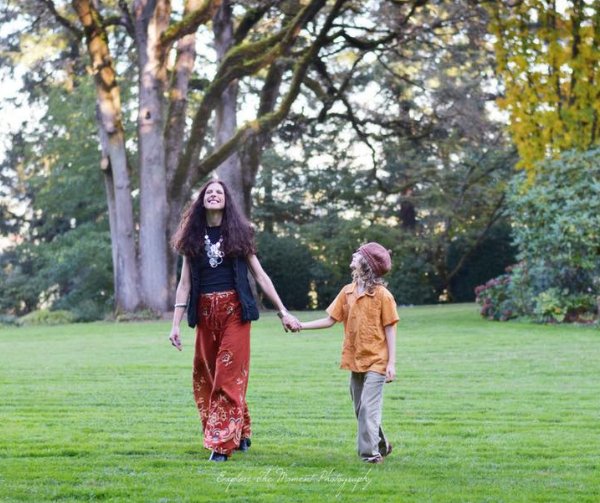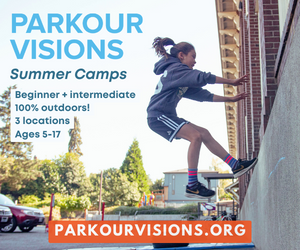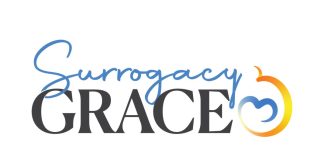It’s been a big time: Halloween, the end of Daylight Savings, and, of course, the mid-term election. With current events shining a spotlight on the meaning of consent and as a parent educator, I’m in awe of how recent political movements create a new day for our children. How can we as parents maximize the positive potential of this moment in time? How do we teach our children about consent? How can be a living example of what we want to see in the world? How do we instill in our children the values and lessons we may never have learned from our own parents?

According to Mirriam-Webster, consent means to “agree” or “have agreement.” In positive parenting, we work toward a standard of consent or agreement with our children based on mutual respect for and trust in one another. Consent in parenting is not the standard in our society, just as consent in sexual relations has not been either. For most parents today, we never learned as children how to develop a respectful voice that was heard. We weren’t taught how to work as a team for the same common good with our parents and siblings. And we probably didn’t learn the tools of mutual agreement that respects every family member’s needs and realities.
Most of us were raised with the implicit belief that if children don’t listen, then force was acceptable. As conscious parents today, this inherited belief from the generations before us doesn’t align with our true beliefs. Yet, when triggered and/or stressed, it is easy to fall back on what most of us learned from our own parents and force children into compliance, throwing consent out the window.
Working toward mutual agreement with our children is the number one way to model consent and to teach them from the very beginning that consent is the gold standard of life. The ultimate goal is to let go of old patterns of force, and teaching ourselves how to parent both our children, and ourselves, from a place of dignity, respect, and trust. Here are THREE tools of consent you can practice in your family to work toward this goal:
1. HALTS: Meet Your Basic Needs
In Positive Discipline, we borrow the concept of HALT from Alcoholics Anyomous; Hungry, Angry, Lonely, and Tired. I add an “S” on for families to stand for Sick and/or Stressed. The idea is that if you are hungry, thirsty, in need of positive outlets to express high emotions, crave connection time with yourself or other adults, or are stressed or sick in any way, it’s going to be very difficult to behave positively. With HALTS or unmet basic needs, parents are more likely to either fall into extremes of force or giving in.
While it may not be possible to have all your needs met 100% of the time, it is important to develop a daily awareness of HALTS or chronically unmet basic needs. Having compassion for yourself, lowering your expectations, and doing your best to nurture yourself is the key to maintaining mutual respect and dignity and practicing consent in your family, even under stress.
2. Problem Solve in Calm and Connected Moments
Most of are used to dealing with challenges in the moment, but this often leads to reactivity and damage control, rather than transforming challenges, teaching children life skills, and feeling like the amazing parent you truly are. If you teach yourself to take five minutes when everyone is feeling positive and their needs are met, you can brainstorm solutions with your children (or model for your children if they are very young).
3. Trust Your Children’s Inner Wisdom
Moms who use Empowering Encouragement call it magic! Using the sentence starters “I have trust…” “I have faith…” and “I believe…” are magic because when you tell your children you trust, believe, and have faith they can do ____, it sends them the message that they can do it, and most often they do! Repeating to yourself throughout the day, “I trust we can get out the door smoothly” or “I have faith my oldest can use gentle hands with the baby” can be a game changer, and lays the foundation for cooperation, agreement, and consent.
We can raise children who expect dignity, respect, and trust in themselves, and offer it to others; children who embody consent as their gold standard expectation. They key is to have compassion and respect for ourselves, and to commit to learning alongside our children as we’re teaching them. This is the power of teaching and modeling consent in parenting today.
 Megan Barella, MS is a mom to a ten-year-old son and a Certified Positive Discipline Parent Educator and Master Trainer. Through her community-based and online positive parenting programs, Megan helps families reclaim their birthrights to happy homes.
Megan Barella, MS is a mom to a ten-year-old son and a Certified Positive Discipline Parent Educator and Master Trainer. Through her community-based and online positive parenting programs, Megan helps families reclaim their birthrights to happy homes.


















